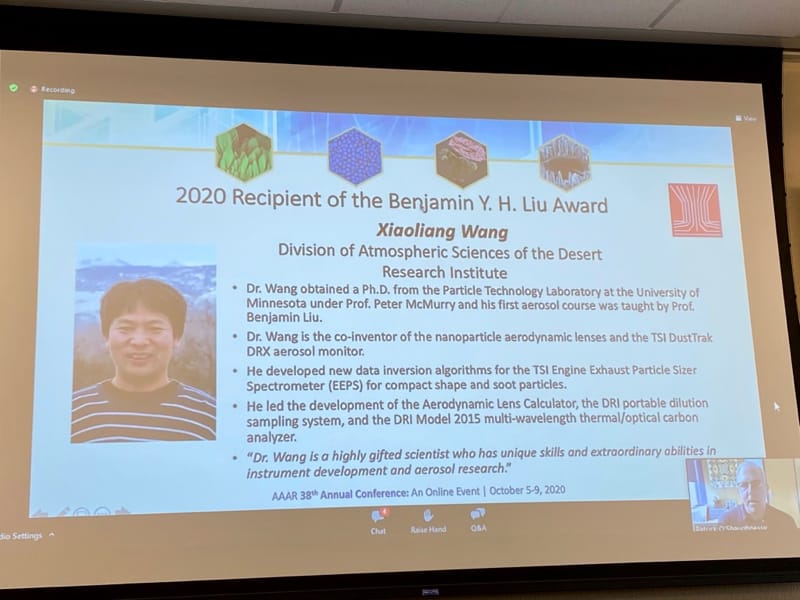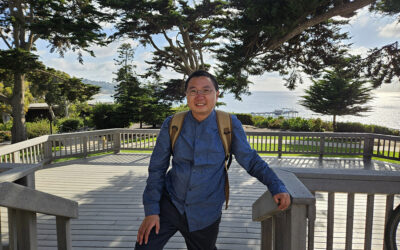Reno, Nev. (Oct 7, 2020) – Xiaoliang Wang, Ph.D. of the Desert Research Institute (DRI) in Reno, Nev. is the winner of this year’s Benjamin Y. H. Liu Award from the American Association of Aerosol Research (AAAR). He was recognized for this honor today at a virtual ceremony during the AAAR’s Annual Conference.
Wang, a research professor with DRI’s Division of Atmospheric Science, studies aerosols – tiny solid particles or droplets that are suspended in the air. His research interests include physical and chemical characterization of aerosols, pollution source characterization, air quality measurement, and aerosol instrument development. He is being honored with this award in recognition of his outstanding contributions to aerosol instrumentation and experimental techniques that have significantly advanced the science and technology of aerosols.
Wang is the co-inventor of the nanoparticle aerodynamic lenses and the DustTrak DRX aerosol monitor, an instrument named after him. He developed the new the data inversion algorithms for the TSI Engine Exhaust Particle Sizer Spectrometer (EEPS) for compact shape and soot particles. He led the development of the Aerodynamic Lens Calculator, the DRI portable emissions measurement system, and the DRI Model 2015 multi-wavelength thermal/optical carbon analyzer.
Wang holds M.S. and Ph.D. degrees in mechanical engineering from the University of Minnesota, and B.E. degrees in thermal engineering and environmental engineering from Tsinghua University in Beijing, China. He has been a member of the DRI community since 2009.
The award honors Professor Benjamin Liu for his leadership in the aerosol community and his own seminal contributions to aerosol science through instrumentation and experimental research. Professor Liu is a founding father of the AAAR and of the society’s journal, Aerosol Science and Technology, and helped establish the International Aerosol Research Assembly. He received the Fuchs Memorial Award in 1994 and retired as Regents’ Professor from the University of Minnesota in 2002, where he also served as the director of the Particle Technology Laboratory from 1973 to 1997.

DRI Research Professor Xiaoliang Wang received the 2020 Benjamin Y. H. Liu Award in a virtual ceremony during the American Association of Aerosol Research’s Annual Conference on October 7, 2020.
Additional information:
For more information about Xiaoliang Wang and his research, please visit: https://www-dev.dri.edu/directory/xiaoliang-wang/
For more information about the Benjamin Y.H. Liu Award, please visit: https://www.aaar.org/awards/annual-awards/benjamin-y-h-liu-award/


